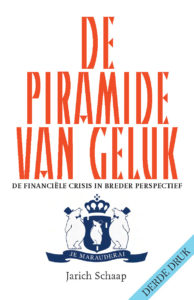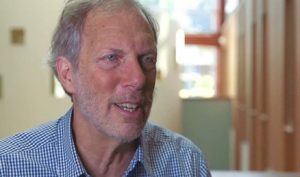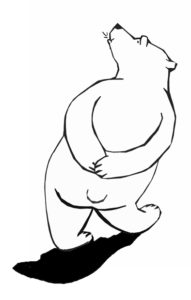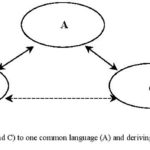Rosemarijn Hoefte ~ Koloniale stuiptrekking: Het experiment Suriname in de jaren 1930
Op 16 maart j.l. hield Rosemarijn Hoefte, in 2017 met steun van het KITLV-KNAW benoemd tot hoogleraar Geschiedenis van Suriname sinds 1873 in vergelijkend perspectief, haar inaugurele rede, getiteld ‘Koloniale stuiptrekking: Het experiment Suriname in de jaren 1930’ aan de Universiteit van Amsterdam.
Begin jaren dertig van de vorige eeuw veroorzaakten economische misère en werkloosheid sociale onrust in Suriname. In tegenstelling tot andere Caraïbische koloniën vond in Suriname een conservatieve backlash (tegenbeweging) plaats. Rosemarijn Hoefte gaat in haar oratie in op de discrepantie tussen het Nederlands koloniale beleid en het groeiende Surinaamse bewustzijn in de dertiger jaren.
De nieuw benoemde gouverneur J.C. Kielstra voerde een repressief beleid en lanceerde een experimenteel plan om Suriname via een tweetraps strategie te ‘ver-indischen’. Het meest in het oog springende element was de migratie van 100.000 Javanen ten behoeve van de kleine landbouw.
Het beleid van Kielstra en zijn plan tot de ver-indisching van Suriname waren een koloniale stuiptrekking. De gouverneur parachuteerde zijn plannen in de kolonie, zonder veel voeling voor wat de inwoners van Suriname bewoog of belangrijk vonden. De gouverneur was blind voor veranderingen in koloniale samenlevingen in het algemeen en die in Suriname in het bijzonder. Hij zag niet dat er een er een ‘eigen’ Surinaamse samenleving begon te gloren, aldus Hoefte.
De oratie kunt u hier terug lezen.
Een Engelse versie is ook beschikbaar.
Misleading Unemployment Numbers And The Neoliberal Ruse Of “Labor Flexibility”
Poverty is deepening and the standard of living is declining in the US, even as the national unemployment rate has hit historically low levels. Meanwhile, wages remain stagnant and inequality is worsening with every passing year. What explains this anomalous state of the US economy, and what can be done about it? In this exclusive interview with Truthout, economist Robert Pollin, co-director of the Political Economy Research Institute at the University of Massachusetts at Amherst, analyzes the perverse and extreme nature of the neoliberal economic landscape in the US.
C.J. Polychroniou: Bob, the official US unemployment rate was at 3.8 percent in May 2018, which is the lowest rate since 2000. Is this an indication of the underlying strength of the economy under the policies of the Trump administration, as some pundits seem to be suggesting?
Robert Pollin: After the bursting of the Wall Street speculative bubble at the end of 2007, the US and global economy collapsed into the Great Recession, with national income (GDP) falling by 4 percent by the end of 2009. The US economy has been in a “recovery” since the end of 2009 — meaning that national income has been rising steadily for nine years. But the recovery has been extremely weak by historical standards. The US economy has grown at an average of 2.1 percent between 2009 and the present. This compares with a 3.4 percent average growth rate from the end of World War II until just before the Wall Street collapse. There is no evidence that the overall growth of the US economy has improved since Trump took office in January 2017.
The official unemployment rate peaked amid the Great Recession at nearly 10 percent. It has been falling fairly steadily ever since, through most of the Obama years as well as the 18 months that Trump has held office. So again, there is no evidence that anything Trump has done per se has brought the official unemployment rate to its current low level.
We also need to be clear, though, as to what employment conditions really look like even when the official rate is historically low, at 3.8 percent. The US Labor Department itself has more than one measure of conditions in the labor market. The rate we are quoting — 3.8 percent — refers to everyone who had any kind of job as “employed,” including people who wanted to work 40 hours a week but could only find a job at, say, 10 hours a week. We call the people who aren’t getting as many hours as they would like as “underemployed,” but they are still counted as employed in the official measure of unemployment.
The Labor Department also has categories of people that it calls “marginally attached” and “discouraged.” These are people who are not counted as part of the unemployed in the official measure, because they haven’t looked for a job within the last month, but have looked within the past year. But if we count the underemployed, marginally attached and discouraged workers as among the unemployed, the US Labor Department’s own figure for this measure of unemployment rises to 7.6 percent for last month. That is 12.3 million people overall — roughly equal to the entire population of New York City and Los Angeles. Read more
Depraved Cowards And The Collapse Of U.S. Civic Culture
There is a clear pattern among entertainment and public figures in general in the United States, which is to make racist statements (ala Roseanne Barr) or employ vulgar and filthy language (ala Samantha Bee) and then apologize the day after when they feel the heat, professionally, and sense that their contemptible behavior may lead to a loss of job opportunities, income, and professional marginalization in general. Another very common pattern among people from all walks of life who have committed horrible acts is to try to excuse their behavior by attributing it to factors beyond their own control (drugs, alcohol, sexual disappointments (unfuckability), “the devil made me do it”, and so on).
Depraved is the only word to describe the behavior of people who do not think twice before insulting other human beings with the use of vulgar language. However, the reaction of these people to either real or perceived “corrections” that their depraved behavior may elicit by their employers also indicates that they lack a backbone. In other words, their depraved behavior is also accompanied by political cowardice.
Depraved cowardice among entertainment and public figures in the US (and a similar case can be made about many of the women in Hollywood who are coming out years later, when all is safe and secure, to declare their victimhood and demand justice for having experienced sexual assaults by men who had the power to promote or kill their acting careers) is a symptom of a capitalist culture in which the only things that really matter are money and professional advancement. But the sharp decline of civic culture in the US is also symptomatic of a society that lacks institutions and political leaders that seek to advance a vision of a common good based on the principles of reason, human dignity, justice, equality, and democratic ethos.
The entertainment industry has played of course a significant role all of its own in the deterioration of civic values and civilized behavior in U.S. society through its constant glorification of violence, with its pathological tendency to delink the individual from the social whole, and the use of incessant cursing and bad language in movie dialogues and music lyrics. Rap music, in particular, seems to thrive on the use of profane and vulgar language, and thereby leading the way towards blurring, if not wiping out, the lines between human decency and depravity. Read more
De piramide van geluk ~ De financiële crisis in breder perspectief – Inhoudsopgave
Aan de vooravond van een nieuwe economische en financiële crisis is het goed om te weten hoe dat nu allemaal zit. Waardoor belanden we iedere keer weer in de penarie?
Dit boek probeert de basisprincipes uit te leggen van hoe economie werkt.
Aan de hand van de geschiedenis van het bankieren – de ontwikkeling van simpele bewaarplaats tot moderne bad banker – komen we bij de eenvoudige wetten die samen de wetenschap Economie vormen.
Inhoudsopgave
E.W.J. de Rijk Bakker – De piramide van geluk
Inleiding
Deel I – De totstandkoming van het bankwezen
Geld
Van geld naar bank
Van bewaarplaats naar instituut
Instituut en samenleving
De rol van de samenleving in de economie
De rol van de samenleving in de economie II
Deel II – Basisbegrippen van de economie
Arbeid, tijd en kapitaal
Deel III – De rol van alles
De rol van alles. Taal, cijfers en psychologie
Deel IV – De economie en de toekomst
De toekomst en de economie
Jarich Schaap – De piramide van geluk. De financiële crisis in breder perspectief.
Trottel Verlag, Berlijn 2009. ISBN 978 90 361 0127 1
Derde druk. De eerste en tweede druk zijn niet verschenen
Oorspronkelijke titel: Die Glückspyramide – Die Finanzkrise aus erweiterte Sicht.
Trottel Verlag, 2009, Berlin
Uit het Duits vertaald door drs. Helga Schmidt
Omslag: IB Producties, Amsterdam
Beren: Jean Cameron, Amsterdam
Naar het: voorwoord
De piramide van geluk ~ Voorwoord
In de afgelopen eeuwen, maar met name in de laatste vijftig jaar, zestig jaar hebben wij een economisch stelsel ontwikkeld dat het beste met ons voor heeft.
Het gemiddelde inkomen is in die periode enorm gestegen, de welvaart is navenant toegenomen.
Voor de gemiddelde inwoner van Nederland geldt dat de primaire levensbehoeften – eten, drinken en onderdak – naar tevredenheid vervuld zijn.
Wij zijn zo rijk dat we geld overhouden. Dat beleggen we in aandelen waardoor we naast ons werk ook nog mede-eigenaar zijn van tientallen bedrijven. Waardoor we nog meer verdienen.
Als u desondanks niet genoeg geld heeft voor een nieuw huis, is daar de bank die dat geld aan u leent.
Al is lenen een raar woord, want ook de bank heeft het beste met u voor. Het geleende geld wordt ook weer belegd, waardoor u van die winst uw huis kunt afbetalen.
Mocht het tijdelijk echt tegenzitten, dan hebben we nog meer mogelijkheden voor u om extra geld te krijgen. Van creditcard tot persoonlijke lening, het is er allemaal voor uw gemak. En wij varen er wel bij.
De piramide van geluk noemt de econoom Karl M. Hope dit stelsel. In zijn boek Het voordeel van gemak schetst hij de wereld waarin wij leven als zijnde dichtbij het ideaalbeeld dat utopisten vroeger hadden.
Met deze kanttekening dat Hope het nivelleringsdenken waar veel utopisten mee behept zijn, ten strengste afwijst.
Hope stelt dat het Lustprinzip de drijfveer is voor verandering en verbetering. Zonder die drang vervalt de mens tot nietsdoen. Hebzucht en graaidrang zijn essentiële eigenschappen om voortgang te boeken.
Het heeft onze samenleving gebracht waar zij is. We leven in een van de rijkste landen van de wereld.
In een crisisperiode vervalt de mens graag tot conservatieve gedachten. De roep om regulering en ingrijpen is groot. Met een beroep op de financiële crisis is de wens weer hoorbaar dat ‘we hieruit lering moeten trekken’.
Laat ik duidelijk zijn. Onze piramide van geluk is niet gebouwd op dromen. Maar op hard werken en goed verdienen. De een wat meer dan de ander. Dat houdt de prikkel levend.
IJBB heeft de econometrist Schaap gevraagd om de geschiedenis van de economie en het bankieren in vogelvlucht in kaart te brengen. Enerzijds om de leemte in uw kennis te vullen, anderzijds om de mogelijke pijn die deze crisis meebrengt te verzachten. Want er is niets nieuws onder de zon. Rare fratsen zijn van alle tijden, tegenslagen horen erbij.
Amsterdam, mei 2009
Naar de Inleiding: de-piramide-van-geluk-inleiding/
De piramide van geluk ~ Inleiding
 U bevindt zich in een economische crisis. Lees de krant er maar op na. Hoe komt dat nu allemaal, hoe zit dat? Maar vooral: wie hebben de schuld van deze crisis? Dat is wat u en ik willen weten.
U bevindt zich in een economische crisis. Lees de krant er maar op na. Hoe komt dat nu allemaal, hoe zit dat? Maar vooral: wie hebben de schuld van deze crisis? Dat is wat u en ik willen weten.
Het antwoord is niet welkom, maar u en ik zijn de schuldigen.
Dat is de onaangename verrassing van dit boek. Op zoek naar verzachtende omstandigheden – wnat ook dit boek moet verkocht – stellen we daarom de volgende vraag: waarom zijn wij medeplichtig?
Op zoek naar het antwoord op deze vraag komen we bij de economen terecht.
Zij weten waar het over gaat. Zij weten waarom de een veel geld verliest, waarom de ander te veel auto’s maakt. Waarom de een wel durft te vragen om miljarden en de ander niet, weten zij niet.
Maar ze weten wel waarom de een miljarden krijgt. En de ander niet.
Daarom is economie een wetenschap.
Dit boek probeert de basisprincipes uit te leggen van hoe economie werkt. Dit wordt gedaan aan de hand van een praktisch voorbeeld: bankieren.
Een bank is namelijk het beste voorbeeld om aan u duidelijk te maken wat economie is. Omdat een bank alles doet met geld wat er met geld gedaan kan worden.
U bent namelijk maar beperkt in uw handelen: u koopt er iets mee, u leent soms, spaart zo nu en dan of verliest het.
Een bank doet veel meer met geld.
Aan de hand van de geschiedenis van het bankieren – de ontwikkeling van simpele bewaarplaats tot moderne bad banker – komen we bij de eenvoudige wetten die samen de wetenschap economie vormen.
Berlijn, 2009
Naar: de-totstandkoming-van-het-bankwezen-geld/







